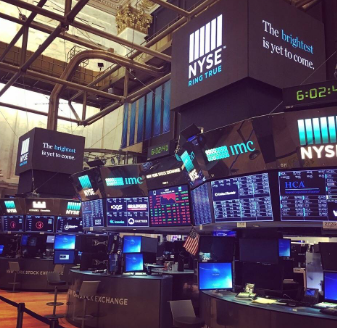Introduction: The Broker’s Enduring Significance
In the ever-evolving realm of forex trading, the broker remains a pivotal figure. While the fundamentals of currency exchange persist, the ways in which individuals access and participate in the market have been transformed by technological advancements and shifting consumer preferences. Today’s forex broker is no longer just a facilitator of trades; they are technology providers, educators, community builders, and, above all, guardians of fund security.

Technological Innovation: Reshaping the Trading Experience
Technology has been the driving force behind the modernization of forex trading. Brokers have embraced innovations such as advanced charting tools, sophisticated trading platforms, and, crucially, robust APIs (Application Programming Interfaces). These APIs allow traders to connect their own custom-built applications and algorithms, enabling automated trading strategies and enhanced market analysis. Furthermore, the integration of real-time forex news feeds directly into trading platforms provides traders with instant access to critical information that can impact currency valuations. This direct access to market-moving news significantly improves the trading experience and allows for more informed decision-making.
The Rise of Social Trading and Copy Trading
The advent of social trading and copy trading platforms has democratized access to the forex market, allowing novice traders to learn from and replicate the strategies of more experienced individuals. Brokers that offer these features provide a ‘follow’ or ‘copy’ function, allowing users to automatically mirror the trades of successful traders within a ‘follow community’. This can be particularly beneficial for beginners who lack the time or expertise to conduct in-depth market analysis. However, it’s crucial to remember that past performance is not indicative of future results, and careful consideration should be given before following any trader.
Smart Copy Trading: A Step Beyond Traditional Copying
Building upon the foundation of copy trading, some brokers are now offering ‘smart copy trading’ solutions. These systems incorporate algorithms that analyze the risk profiles and trading styles of different traders, enabling users to select strategies that align with their individual risk tolerance and investment goals. This level of customization and intelligent filtering provides a more sophisticated and potentially more profitable approach to social trading.
The Crucial Role of Regulation and Security
In an environment where scams and fraudulent activities are unfortunately prevalent, the role of regulation cannot be overstated. Reputable forex brokers are licensed and regulated by recognized authorities, such as the Financial Conduct Authority (FCA) in the UK, the Cyprus Securities and Exchange Commission (CySEC), or the Australian Securities and Investments Commission (ASIC). These regulatory bodies impose strict requirements on brokers, including capital adequacy requirements, segregation of client funds, and adherence to ethical business practices. Traders should always verify the regulatory status of a broker before entrusting them with their funds, ensuring their capital is safeguarded.
Enhancing Fund Security: Beyond Regulatory Compliance
While regulatory compliance is essential, brokers can take additional steps to enhance the security of client funds. This includes employing advanced encryption technologies to protect data transmissions, implementing multi-factor authentication to prevent unauthorized access to accounts, and maintaining comprehensive insurance coverage to protect against unforeseen events. A commitment to fund security is a hallmark of a trustworthy and reliable forex broker.
The Future of Forex Brokers: Embracing Continuous Innovation
The future of forex brokers lies in embracing continuous innovation. This means not only adopting new technologies but also focusing on enhancing the overall trading experience for their clients. This includes providing personalized support, offering educational resources, and fostering a transparent and trustworthy trading environment. As the forex market continues to evolve, brokers that prioritize innovation and client satisfaction will be best positioned to thrive and maintain their relevance in this dynamic landscape.
Conclusion: Choosing the Right Broker
Selecting the right forex broker is a critical decision that can significantly impact a trader’s success. By carefully evaluating factors such as regulatory compliance, platform features, available trading instruments, customer support, and security measures, traders can make informed choices and partner with brokers that align with their individual needs and goals. The best brokers are those that not only provide access to the forex market but also empower traders with the tools, knowledge, and security they need to succeed.
